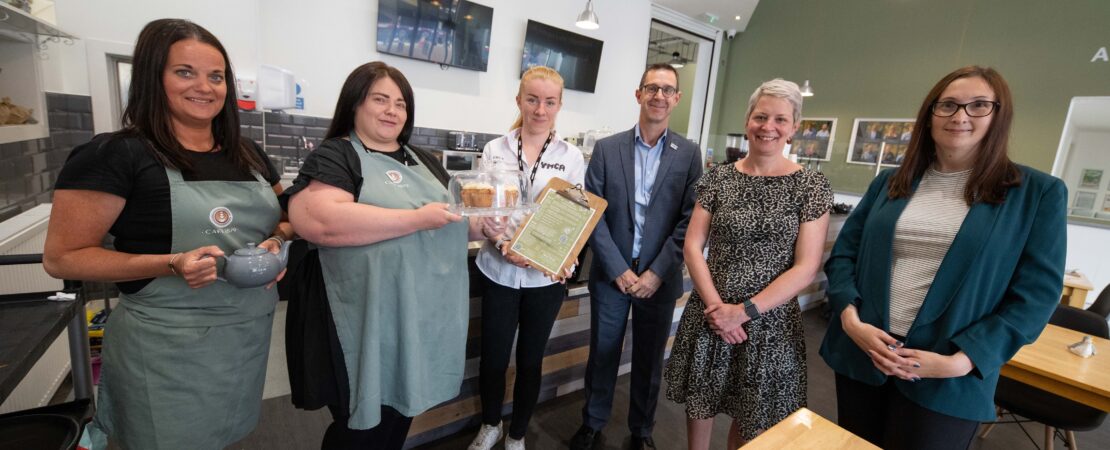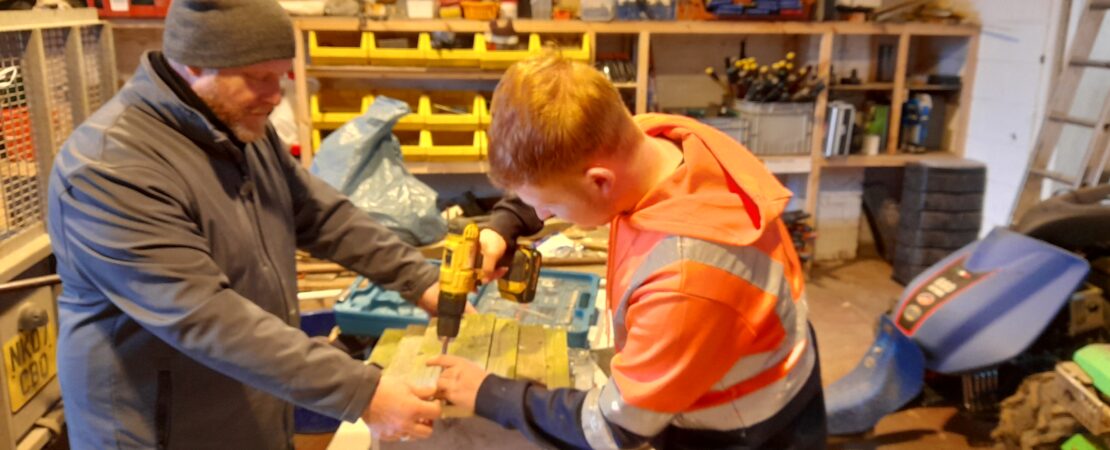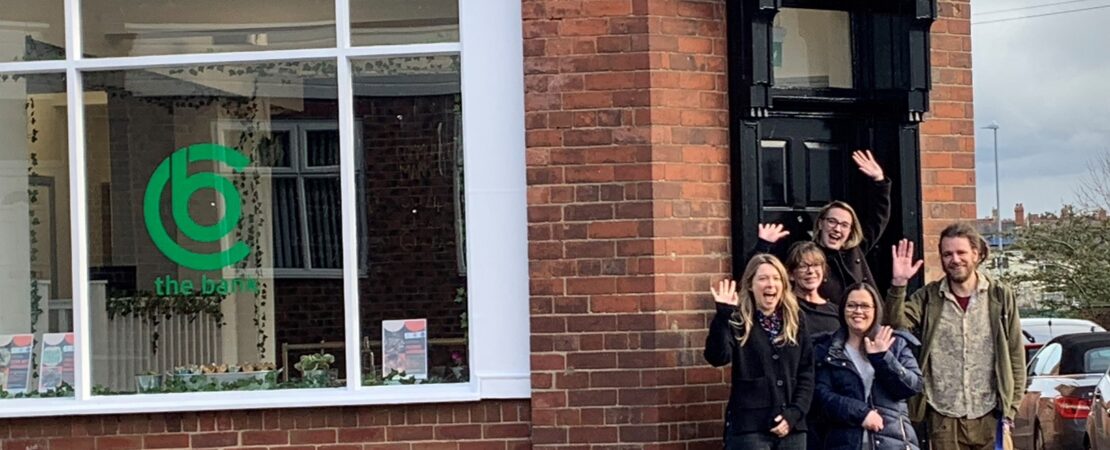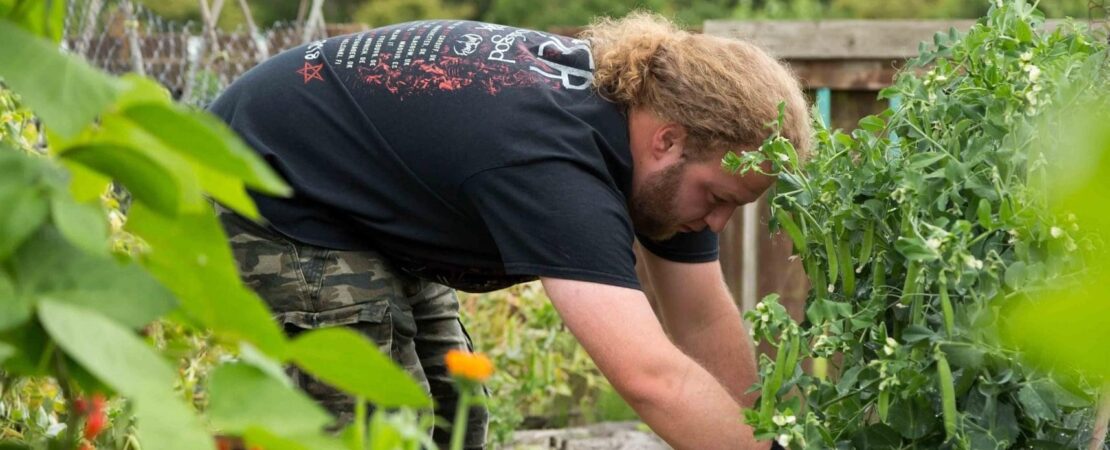Young people who took part in six-month traineeships in Northumberland have shared their experiences of gaining skills in conservation, land management and woodland maintenance.
The trainees took part in Groundwork North East’s Green Futures programme, which was part-funded by the North East Local Enterprise Partnership (LEP)’s Local Growth Fund VCSE Capital Grant programme, which aims to help communities across the North East recover from the impact of the COVID-19 pandemic.
Overall, more than 50 young people aged between 16 and 24 have taken part in training and volunteering, gaining skills that will set them up for future careers in the ‘green economy’. Five of the young people completed six-month paid Kickstart traineeships, working at two sites: Pegswood Moor Country Park and Pegswood Community Woods, near Morpeth, Northumberland.
Here, they share their experiences of the Kickstart placements:
What made you decide to apply for a Kickstart traineeship at Groundwork North East in Northumberland?
Ethan M: “I was unemployed after my A levels and I started volunteering at Groundwork NE as I am interested in conservation and wildlife. So I applied for the Kickstart job.”
Will: “I liked the idea of helping wildlife and being outdoors, I had worked in a primary school as a lunchtime assistant for two hours a day, this involved serving food, supervising the children and writing up first aid incidents. Before that I was at college doing art, design and animation and then I decided I wanted to get into more physical outdoor work.”
What has been your favourite aspect of the programme?
Dale: “For me, the opportunity to get qualifications in tree surgery and related land qualifications. I don’t think I could have got them otherwise as I have been trying for seven years. But between living, rent and food there wasn’t enough…I have really enjoyed being part of the Kickstart Team working alongside other young people at Groundwork in Northumberland. I’ve learned about conservation, protecting wildlife and also gained some really valuable qualifications including tree surgery.”
Ethan M: “I enjoy working with the team – I had only worked in a team in college so now I am more familiar being in a team in a workplace. Everything you do carries everyone in the team so it’s important that no-one is doing less than anyone else.”
What have you learned through the Green Futures Kickstart programme about sustainable practices which protect the environment?
Ethan M: “We learned about the biology of the trees in Pegswood Country Park which used to be an open cast mine. There has been a lot of storm damage, due to the poor, shallow soil, it is not enough for the roots to grow deeply. We planted thousands of wildflowers in the meadow plantation and we have also done crown lifting of trees to improve light and sightlines which helps deter anti-social behaviour. We have removed blackthorn – they are invasive as they will grow through paths so they need cleared.”
Will: “We have learned all about pruning and lopping techniques, how to saw and what to prune or not prune so that trees don’t get diseased. We have been doing crown lifting to allow more sunlight to come in and let the smaller trees grow better and to allow clearer pathways so everything is not packed together.”
What has it been like being part of a team of Kickstarters?
Ethan M: “This was my first time in a working environment, it’s been a great experience and especially useful for me to work in a team on a regular basis.”
Will: “It was good to get an idea of what it is like in a work environment and working with different people, I have not really experienced that. At Groundwork we have worked with people doing different jobs so this has included working in the country park and with local community groups who partner with Groundwork.”
Can you talk about the individual projects you have worked on and give some examples of the practical skills you have achieved?
Curzon: “I used oak to make a rustic bench as a feature in the park, it would have cost a fortune to buy it and we used wood that would otherwise have rotted. Working with the Ashington Woods Community Group, one of the Friends, Dennis, has an Alaskan style saw mill which we learned how to use…It took a lot of force to push it and I learned how to keep it straight and keep the chainsaw steady. These skills have been great to learn.”
Will and Ethan: “We are going to make more benches as when Groundwork have talked to local people, it is important for them to have spaces to have a rest. We are going to find out where they would like these in the park and then make and install these as part of our project. It will form an accessible route around the park.”
What has it been like working with Groundwork North East staff?
Will: “I’ve become much more familiar with daily tasks, knowing what to do with each task so I can be more independent when getting ready to work on jobs around the park. Doing things more independently is a good feeling and it makes me feel confident about my job.”
Have you enjoyed getting involved in sessions with volunteers and the wider community?
Ethan M: “We worked with volunteers at the pit heap, the community woods volunteers and school children who volunteer form a local school regularly. It was sad after Storm Arwen as the Friends of Pegswood Woods were devastated that there were hundreds of wind blow trees. One of the volunteers, Jean, was in tears.”
Dale: “We worked with Barry, the Tree Officer for Northumberland County Council and Groundwork NE, to help clear the area.”
Do you think your job and employment prospects have improved as a result of your training at Groundwork NE and the Green Futures programme?
Dale: “Gaining qualifications for my CV and having a good job will really help. I have talked to some local employers, it makes it more enticing to hire you. The companies have some commercial projects coming up so they will contact me when spaces become available and I am also looking for jobs. I’d be really happy if I don’t have to move away.”
What advice would you give other young people seeking opportunities?
Dale: “Even if it’s not a job you might be interested in give it a shot.”
Ethan M: “Volunteering paved the way absolutely for me at Pegswood Country Park, it definitely helped me to get onto this programme. I would say keep looking for opportunities and don’t give up.”





